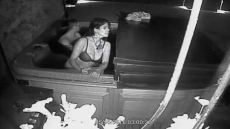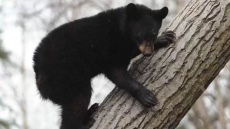OTTAWA — Federal officials used photo-matching technology to identify 15 high-risk people — all wanted on immigration warrants — who used false identities to apply for travel documents.
The Liberal government might make the facial-recognition scheme permanent to help find and arrest people ineligible to remain in Canada due to involvement with terrorism, organized crime or human rights violations.
It's just the latest example of federal efforts to zero in on lawbreakers using biometrics — physical identifiers such as images, fingerprints or iris scans.
The photo-matching idea emerged from concerns that people wanted by the Canada Border Services Agency might use fake names to obtain genuine Canadian travel documents from the Immigration Department's passport program, say internal memos released under the Access to Information Act.
"Genuine Canadian passports and other travel documents are of high value to persons who seek to establish false identities," says a memorandum of understanding between the border and immigration agencies.
"Individuals who have outstanding immigration arrest warrants can evade detection by law enforcement by using false identities to travel, or to live within communities while retaining access to benefits and services."
Moreover, fraudulently obtained travel documents can allow someone to slip across the border undetected, the memorandum says. These could include a passport, emergency travel document, refugee travel document or certificate of identity — a document issued to permanent residents of Canada who are not yet citizens.
Initial encouraging tests led to a 2014 pilot project in which the border agency shared the photos and biographic information of 1,000 wanted individuals with a high-risk flag on their files to see if they had applied for — or even obtained — a Canadian travel document under a false identity.

Fifteen matches turned up, prompting the border agency to pursue "appropriate enforcement action," said Esme Bailey, an agency spokeswoman. That could include referral of a case for possible criminal charges or citizenship revocation, further investigation by the border agency in an attempt to locate the wanted individuals, or issuance of a border "lookout" for those whose whereabouts are unknown.
"No further details can be released at this time as not to compromise ongoing investigations," Bailey said in an emailed response to questions.
A second phase of the pilot project was approved and wrapped up at the end of March, she added. Information from the latest phase is still being analyzed and no additional statistics are yet available.
Once border and immigration officials have finished their analysis, there will be a recommendation on the value of establishing a permanent information-sharing arrangement, Bailey said.
The two agencies completed a privacy questionnaire for the pilot phase and if the project advances, a full privacy impact assessment — a tool for ensuring personal information is not improperly used — will be carried out.
The privacy commissioner's office has not been consulted on the project, Bailey said. However, both the border agency and the passport program have shared information about other facial-recognition initiatives with the commissioner.
Passport officials have used the image-matching technology for years to see if someone has applied for multiple travel documents in different names.
The border agency has quietly been working with other agencies since at least 2011 to gauge the ability of devices to extract usable facial images from video footage.



